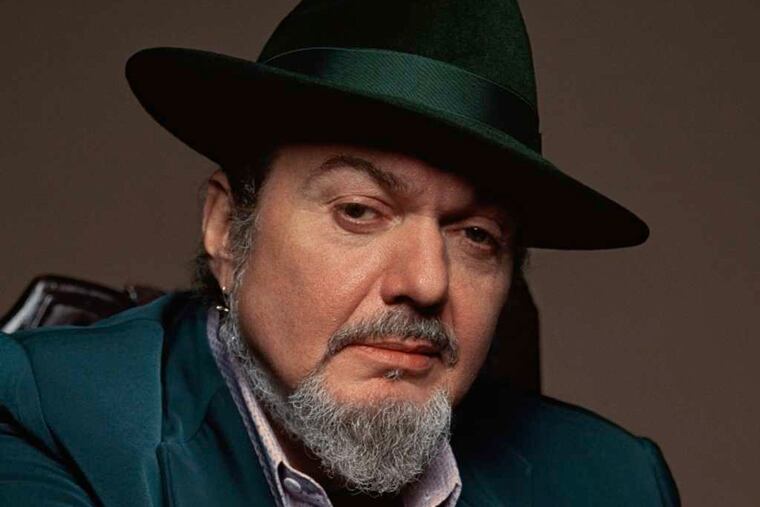Dr. John, funky New Orleans ‘Night Tripper’ musician, dies
The family of the Louisiana-born musician known as Dr. John says the celebrated singer and piano player who blended black and white musical influence with a hoodoo-infused stage persona and gravelly bayou drawl, has died

Dr. John, 77, the New Orleans music standard-bearer who effortlessly embodied the voodoo spirit and uncompromising individuality of the city where he was raised, died Thursday, his family said.
In a statement released through his publicist, the family said Dr. John, who was also known as “the Night Tripper,” a persona he developed in the late 1960s, died “toward the break of day” of a heart attack. They did not say where he died or give other details.
He had not been seen in public much since late 2017, when he canceled several gigs. His last performance in the Philadelphia region was in that year, when he played David Bromberg’s Big Noise Festival in Wilmington. He had been resting at his New Orleans-area home, publicist Karen Beninato said last year.
Memorial arrangements were being planned. "The family thanks all whom have shared his unique musical journey, and requests privacy at this time," the statement said.
Dr. John was born Malcolm “Mac” Rebennack and grew up in the Third Ward section of New Orleans, which also produced Louis Armstrong.
“I listened to all the music I could get my hands on,” he said in recalling his upbringing in 2017. “And it was all there.”
Early on, Dr. John picked up the piano traditions of such Crescent City greats as Professor Longhair, James Booker, and Huey “Piano” Smith. But his favorite was a family member, he said.
“My Aunt Andre. I started playing with her when I was 8 or 9 years old,” he said. "She was a badass player.”
His 1968 debut, Gris-Gris, startled listeners with sinister implications of otherworldly magic. In 1973, he broke through to AM radio with “Right Place, Wrong Time,” which took his gravelly drawl, as rich and piquant as alligator gumbo, into the Top 10 of the pop charts.
Dr. John first entered the music scene when he accompanied his father on the job. He ran a record shop and also fixed the P.A. systems at bars.
As a teenager in the 1950s, he played guitar and keyboards in a string of bands and made the legendary studio of Cosimo Matassa his second home, Dr. John wrote in his 1994 memoir, Under a Hoodoo Moon.
He got into music full-time after dropping out of high school, became acquainted with drugs and petty crime, and lived a fast-paced life. He was an underrated guitar player, but the instrument became secondary after his left ring finger was injured by a bullet at a performance in Florida in 1961. He switched to bass, then settled on piano.
He blamed Jim Garrison, the JFK conspiracy theorist and tough-on-crime New Orleans district attorney, for driving him out of his beloved city in the early 1960s. Garrison went after prostitutes, bars, and all-night music venues.
The underworld sweep landed Dr. John in prison. At the time, he was a respected session musician who had played on classic recordings by R&B mainstays like Longhair and Irma Thomas, but was also a heroin addict. After his release from federal prison in Fort Worth, Texas, at 24, he joined friend and mentor Harold Battiste, who had left New Orleans to make music in Los Angeles.
There, he thrived as a studio musician, falling in with the players known as the Wrecking Crew, backing up Sonny and Cher and Canned Heat, among others. And he created the musical personality of Dr. John, a male version of Marie Laveau, the voodoo queen. The new persona made its first appearance on his debut album.
Dr. John appeared with the Band in Martin Scorsese’s The Last Waltz documentary, and played on the Rolling Stones’ Exile on Main Street. After Hurricane Katrina in 2005, he became a fierce advocate for New Orleans. He was inducted into the Rock and Roll Hall of Fame by John Legend in 2011.
In 2017, he talked about his role as a caretaker of tradition for the City That Care Forgot, previously embodied by piano playing cohorts such as Allen Toussaint, who died the year before. “I feel that spirit is going into me," he said. "And that’s a good thing.”
This article contains information from the Associated Press.